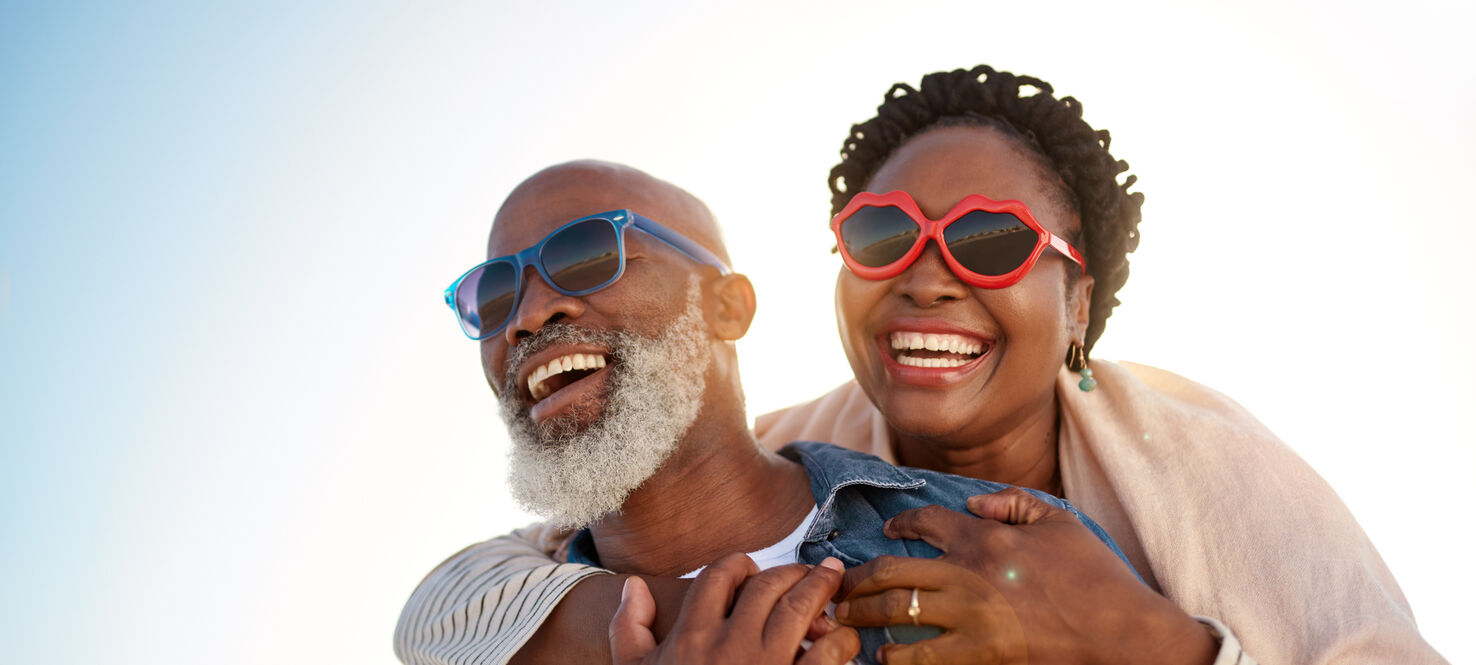This Summer Protect Your Eyes from UV Rays, Too
Enjoying the summer sun is fun, but it’s also important to remember your arsenal of protections from its harmful ultraviolet rays.
While most of us remember sunblock and hats, we may forget about the importance of protecting our eyes. Make sure you grab those sunglasses when you head out the door.
According to Jonathan Zager, MD, a surgical oncologist in Moffitt Cancer Center’s Department of Cutaneous Oncology, our eyes are nearly as susceptible to UV-induced damage as our skin. Protecting them with sunglasses, especially sunglasses that specifically block UV rays, can help us avoid long term damage.
“Get polarized sunglasses,” Zager said. “Your highest risk of damage is from 10 a.m. to 4 p.m.”

UV radiation can directly damage DNA and it can cause a number of health concerns for our eyes, particularly damage to the conjunctiva, cornea and lens. Too much UV radiation can cause cataracts and pterygium, a pinkish, triangular tissue growth on the cornea of the eye that can grow so large that it impairs vision.
And yes, your eyeballs can get sunburned, which can cause swelling, watery eyes and blurry vision. This condition is called photokeratitis, or snow-blindness. Typically, the effects are chronic, meaning they take several years to develop, so one day of forgetting your sunglasses likely won’t cause permanent damage.
Don’t forget to check the label. Many brands of sunglasses have labels of UV400, which is to sunglasses what SPF ratings are to sunblock. UV400 indicates the lenses block all light rays with wavelengths up to 400 nanometers, which covers all UVA and UVB rays.
Finding the right lenses to block UV rays is the first step, but it’s also important to check the fit of your sunglasses. Experts recommend choosing sunglasses that are large enough to prevent UV radiation from entering your eye from all angles, covering your eyes, eyelids and the surrounding skin.
If you are active in sports, use sturdy sunglasses that are plastic and labeled impact-resistant, which means they are less likely to shatter if they are hit. It’s also optimal to go for lenses with scratch-resistant coatings as well.
While sunglasses are the best way for everyone to protect their eyes from the sun’s damaging rays, some people are more susceptible to ocular UV damage than others. Those with blue or green eyes or fair skin and those who wear contacts or take certain medications like retinoids and tetracycline antibiotics could see an elevated risk of damage.
Sunglasses are especially important for children, who's eyes are even more sensitive to the sun's UV rays since they have larger pupils, clearer lenses and typically spend more time outdoors.
Other tips to protect your eyes from UV light include:
- Avoid tanning beds since they use the same harmful UV light as the sun.
- Protect your entire faced from the sun by wearing a hat with a three-inch brim or larger that also shields the back of your neck.
- Fishing or out on the water? Sunlight is reflected off the water, which makes it even more dangerous.
“Wear your sunglasses whenever you are out,” Zager said. “Even on cloudy days because sun damage to the eyes and eyelids can happen any time of the year.”



